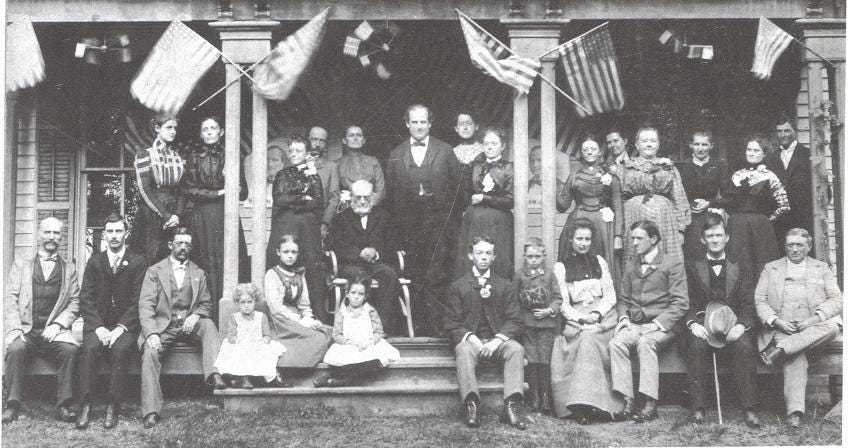The Great Commoner
In 1861, President-elect Lincoln boarded a train bound for Washington. He would not return to Illinois, except in a casket in 1865.
As Lincoln’s train pulled away from the platform in Springfield, and he caught his last glimpses of this place that had shaped him, the future of the American experiment hung in the balance. The 1860 election had split the Democratic Party in two, and several southern states had announced their secession immediately following Lincoln's victory. The future of Illinois was equally uncertain.
Just a hundred or so miles south, in the region known as “Little Egypt”, not far from many of the taverns, courtrooms, and farmhouses that had hosted Lincoln as he rose to prominence, a child sat quietly in his mother’s arms – barely a year old.
William Jennings Bryan, “The Boy Orator” was yet to utter his first words.
That young boy would go on to reshape Democratic politics, and some would claim the entire American political system of the time. A gifted speaker and incredibly ambitious, Bryan is perhaps the most influential of those who claim the title of “almost president” – a club that is lorded over by the likes of Henry Clay, Lewis Cass, Bobby Kennedy, and Hillary Clinton, just to name a few.
He would spend the first 27 years of his life in Illinois, mostly in his hometown of Salem, a small dot on the map that got its start as a pitstop for the Conestoga wagons – a respite for travelers on their way to seek what they believed was a promising future in the west.
Bryan would ultimately follow those wagons, and for the same purpose. His hopes and dreams outgrew southern Illinois, and before long he headed west to Nebraska, leaving behind what he felt was a wasteland of political opportunity. But his early years in Illinois shaped him in ways that he never shook, giving him a great appreciation for America’s laborers and farmers, and instilling in him an unshakeable fundamentalist Christian faith.

Despite a noticeable disregard for the struggle of non-white Americans, through his ability to message to America's white, rural working-class voters with populist policies, command of scripture, and skepticism of east coast elites, Bryan earned himself the nickname of “The Great Commoner”.
This begs the question – what does it mean to be common? William Jennings Bryan, by most accounts, was an extraordinary man. And yet, millions of working people all across America, many of them uneducated, managed to see something of themselves in that product of Marion County, Illinois.
The concept of the “common man” has occupied significant real estate in the American political psyche for generations. Scores of politicians (and their strategists) have tried to walk a fine line – to craft a persona that is perceived as uncommon enough to lead, but common enough to be recognizable to the people who they seek to lead.
For some Americans, it may be comforting to see themselves reflected in those who they believe are common folk, while others strive to be something different, or more. And yet, for many, even the concept of being considered common has never felt within reach.
Political consultants since the days of Calvin Coolidge have aimed to sell to the public the idea of the great “silent majority” – that out there, somewhere in America, exists a massive tranche of voters – a sleeping giant too humbly focused on putting food on the table to have the time to make themselves heard in the national political debate. These strategists, and the candidates they represent, have deputized this rhetoric time and time again in an attempt to empower those individuals that feel passed over, discounted, or underrepresented to come together and rise up to make their voices heard.
The imagination of the political class, however, is often far too exclusive and reductive to recognize that in their attempt to elevate the status of one disaffected group to that of a majority, they in turn minimize the complexities of the lives and interests of each and every person who may find their way to a voting booth in any given year.
And as Scott has found out, that “silent majority” is not so silent after all. Just pull up a chair and introduce yourself.


